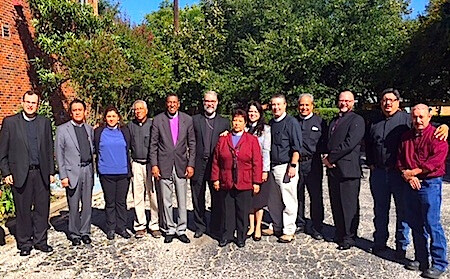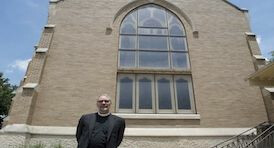Visita del Obispo Quezada a Dallas

El fin de semana pasado tuvimos la agradable visita del Obispo Moisés Quezada, Obispo coadjutor de la Diócesis de Republica Dominicana. El Obispo Quezada y su esposa Jeannette visitaron Dallas gracias a una invitación del Obispo Sumner.
El programa consistió en un día de formación para los clérigos, y un día estupendo de formación para laicos y líderes de las comunidades Latinas de nuestra Diócesis que se llevo a cabo en la Iglesia San Francisco de Dallas.
El Obispo Quezada tuvo la oportunidad de acompañar la junta mensual de parejas de la Iglesia Cristo, y el Domingo visito, celebro, y enseño en la Iglesia Santa María en Irving.
Bishop Quezada visit to Dallas, October 21-23
Last weekend we had the pleasant visit of Bishop Moses Quezada, coadjutor bishop of the Diocese of the Dominican Republic. Bishop Quezada and his wife Jeannette visited Dallas thanks to an invitation from Bishop Sumner.
The program consisted of a training day for clergy, and a great training day for lay leaders of the Latino communities of our Diocese that was held at the Church of San Francisco de Asis in Dallas.
Bishop Quezada also had the opportunity to accompany the monthly meeting of couples of Christ Church, and Sunday he visit, celebrate and taught at St. Mary's Church in Irving.




